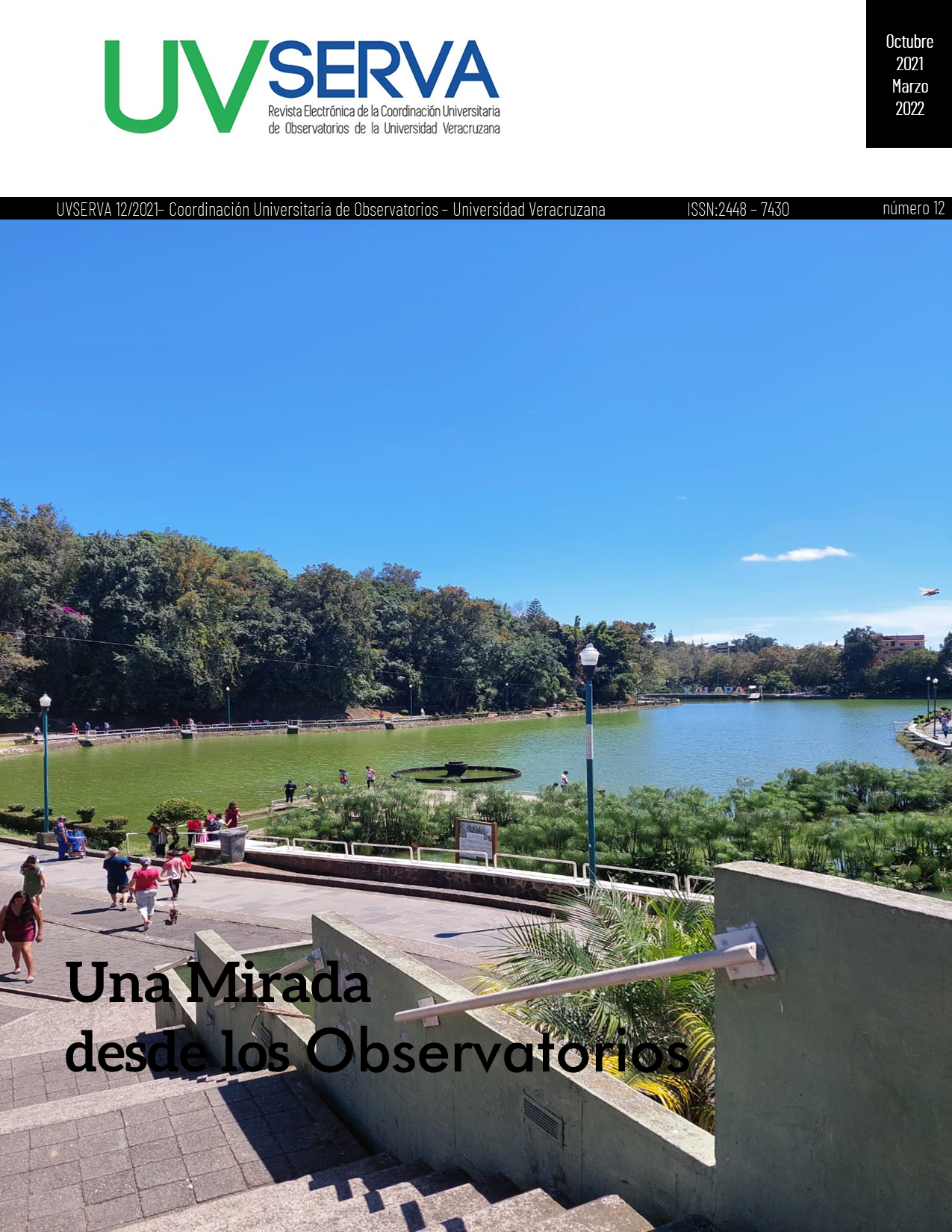Abstract
The data paper presents preliminary results of the occurrence of anxiety and depression symptoms in the context of the COVID-19 contingency in young adults from Veracruz-México. The data used are part of the study "Anxiety, depression, lifestyles and well-being in the current sociocultural context". At this research the hypothesis was raised in that social confinement due to contingency has increased the presence of anxiety and depression symptoms in this population group. 301 people participated, 76% women, 24% men. Preliminary results show that 77.4% of the participants presented symptoms related to anxiety, while 78.7% reported characteristics related to depression. These results, although they are not generalizable, should be considered as a point of reference for the psychological care strategies that should be offered to the Veracruz population, in terms of mental health care.
References
Asociación Médica Mundial [AMM]. (2013). Declaración De Helsinki de la AMM – Principios Éticos Para Las Investigaciones Médicas En Seres Humanos. https://www.wma.net/es/policies-post/declaracion-de-helsinki-de-la-amm-principios-eticos-para-las-investigaciones-medicas-en-seres-humanos/
Berenzon, S., Lara, M. A., Robles, R., y Medina-Mora, M. E. (2013). Depresión: estado del conocimiento y la necesidad de políticas públicas y planes de acción en México. Salud pública de México, 55(1), 74-80.
Bueno-Notivol, J., Gracia-García, P., Olaya, B., Lasheras, I., López-Antón, R., y Santabárbara, J. (2021). Prevalence of depression during the COVID-19 outbreak: A meta-analysis of community-based studies. International journal of clinical and health psychology, 21(1), 1-11. https://doi.org/10.1016/j.ijchp.2020.07.007
Goldberg, D., Bridges, K., Duncan-Jones, P., et al. (1989). Detección de la ansiedad y la depresión en el marco de la medicina general. Br Med J (ed. esp.), 4(2), 49-53.
Huarcaya-Victoria, J. (2020). Consideraciones sobre la salud mental en la pandemia de COVID-19. Revista peruana de medicina experimental y salud pública, 37(2), 327-334.
https://doi.org/10.17843/rpmesp.2020.372.5419
Martínez-Taboas, A. (2020). Pandemias, COVID-19 y Salud Mental: ¿Qué Sabemos Actualmente? Revista Caribeña de Psicología, 4(2), 143-152. https://doi.org/10.37226/rcp.v4i2.4907
Medina-Mora, M. E., Borges, G., Lara, M. C., Benjet, C., Blanco, J. J., Fleiz, B. C., Villatoro, V. J., Rojas, G. E., Zambrano, R. J., Casanova, R. L. y Aguilar-Gaxiola, S. (2003). Prevalencia de trastornos mentales y uso de servicios: Resultados de la Encuesta Nacional de Epidemiología Psiquiátrica en México. Salud Mental, 26(4), 1-16. https://www.redalyc.org/articulo.oa?id=58242601
Montón, C., Pérez Echevarría, M. J., Campos, R., Campayo, G. J. y Lobo, A. (1993). Escalas de ansiedad y depresión de Goldberg: una guía de entrevista eficaz para la detección del malestar psíquico. Atención Primaria, 12, 345-349.
Organización Mundial de la Salud [OMS]. (2020). Depresión. https://www.who.int/es/news-room/fact-sheets/detail/depression
Ramírez-Ortiz, J., Castro-Quintero, D., Lerma-Córdoba, C., Yela-Ceballos, F., y Escobar-Córdoba, F. (2020). Consecuencias de la pandemia Covid 19 en la salud mental asociadas al aislamiento social. https://doi.org/10.1590/SciELOPreprints.303
Secretaría de Salud, (1983). Reglamento de la Ley General de Salud en Materia de Investigación para la Salud. http://www.salud.gob.mx/unidades/cdi/nom/compi/rlgsmis.html
Secretaría de Salud, (2013). Norma Oficial Mexicana NOM-012-SSA3-2012. http://dof.gob.mx/nota_detalle.php?codigo=5284148&fecha=04/01/2013
Shigemura, J., Ursano, R., Morganstein, J., Kurosawa, M., y Benedek, D. (2020). Public responses to the novel 2019 coronavirus (2019-nCoV) in Japan: Mental health consequences and target populations. Psychiatry and Clinical Neurosciences, 74(4).

This work is licensed under a Creative Commons Attribution-NonCommercial 4.0 International License.
Copyright (c) 2021 Sandra Pedraza-Aguirre, Jorge Luis Arellanez-Hernández, León Felipe Beltrán-Guerra, Enrique Romero-Pedraza


